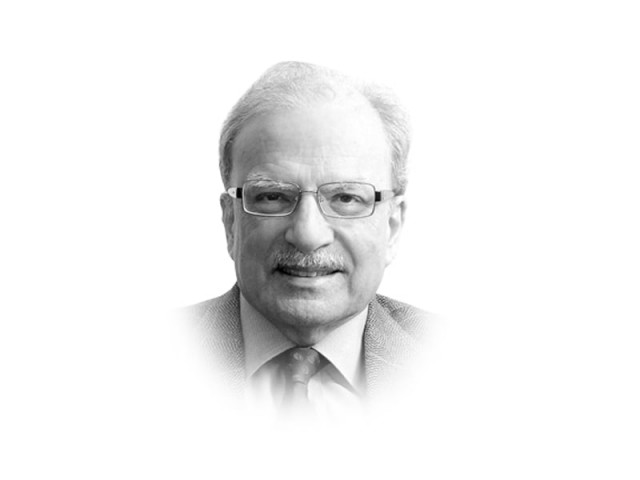Empowering the provinces and local communities
Provincial autonomy would create political and economic competition among govts operating from three different levels.

The writer is a former caretaker finance minister and served as vice-president at the World Bank
It was for this reason that the passage of the Eighteenth Amendment to the Constitution was viewed by so many as such a positive development in the evolution of a new political order in the country. Although the sequencing was not quite correct, the amendment came coupled with the new National Finance Commission Award, which gave the provinces a much larger share in the federal divisible pool. The award was announced in November 2009; the amendment was adopted in April 2010. Ideally, the award should have followed the amendment. Had that happened, those who were devising the financial system would have been more aware of provincial needs.
Giving more authority to the provinces makes them responsive to the people’s wishes and aspirations. That is what theory tells us. But what about practice? There are lessons to be learnt from the Indian experience. India, after all, is a much more mature political system than Pakistan. The 28 states in the Indian union have had a significant amount of autonomy for a long time. This did not matter much when the government was in the hands of a strong national political party that was able to run the country from New Delhi. However, the emergence of regional parties over the last few decades has loosened the grip of the centre. Where the state leadership was in the hands of strong and development-minded leaders, local economies prospered. This was certainly the case for Gujarat, which has done well under the long-serving Narendra Modi, whose claim to the top job in New Delhi is based on the performance of his state under his stewardship.
On the other side of the country is Orissa, a rich state in terms of the mineral wealth it sits on, but has not done well. It has not been able to translate its natural wealth into a high rate of economic growth, increased employment and alleviation of poverty. Orissa, despite its resources, is one of the slowly moving states in the Indian union. We can see Balochistan’s experience in Orissa. Henny Sender of the Financial Times has an answer for the question: why has Orissa lagged behind? “Blame the persistence of vested interests, a system in which democracy is often confused with the right to try to extort from everyone else, a lack of clear rules when it comes to land policies and a constant tug of war between the state governments and national government in Delhi,” she writes. “The state governments have also been stymied by a system which — although seemingly democratic — works to nobody’s benefit. That is especially true for huge natural development projects that would bring in jobs and wealth and earn foreign exchange for India, which the country desperately needs. But since such benefits will only flow through tomorrow, politicians worry about the loss of votes and are reluctant to risk the ire of those who have to locate.” Politicians are also much more interested in maximising their wealth even at the expense of their constituencies. This has certainly been the case in Balochistan.
However, pointing out the problems that democracy, coupled with decentralisation, brings does not mean that this should not be the basis of good governance. I would argue that making the political system competitive is one way of solving the problem of the elite capture of local power. Pakistan, having allowed the provinces more power than ever in its torrid history must take the next step. It should devolve power to the local communities. That would create political and economic competition among governments operating from three different levels — the national, the provincial and the local. Each level should be able to exercise checks and balances on the other two. This should be done within an institutional framework. It already exists in the form of the Council for Common Interests and the National Finance Commission. The former is a permanent body that needs to play a greater role than it has done in the past. The latter is activated every five years. Both need to be supported by professional staffs that can do policy work. Something similar needs to be done to harmonise different needs of the provinces and local communities.
Published in The Express Tribune, January 13th, 2014.
Like Opinion & Editorial on Facebook, follow @ETOpEd on Twitter to receive all updates on all our daily pieces.














COMMENTS
Comments are moderated and generally will be posted if they are on-topic and not abusive.
For more information, please see our Comments FAQ